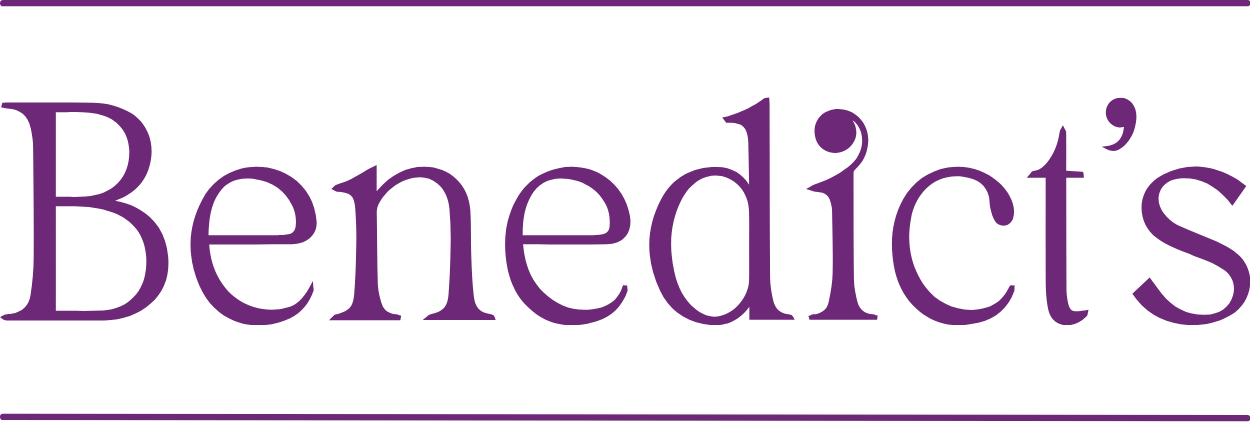Counselling for gay men and relationships in London
Relationships are a central part of our lives, but they can also be a source of stress, confusion, or conflict. For gay men, relationship dynamics can be further complicated by factors like societal pressure, internalised homophobia, and non-traditional relationship structures. Whether you're navigating a long-term partnership, dating, or dealing with the end of a relationship, professional support can make a difference.
At Benedicts, we offer relationship counselling for gay men in London, providing a confidential, understanding, and non-judgemental space to explore your relationship concerns.
Common Relationship Issues for Gay Men
Many relationship issues are universal, but gay men often face additional challenges that are unique to their experiences.
These may include:
- Communication struggles: Difficulty expressing feelings or understanding your partner’s needs.
- Intimacy concerns: Sexual and emotional intimacy may become strained over time.
- Trust and jealousy: Issues with trust, particularly in open or non-monogamous relationships.
- Breakups and grief: The end of a relationship can be devastating, leaving you feeling lost or anxious about the future.
- Navigating non-traditional relationships: Open relationships or polyamorous structures may require clear boundaries and communication to maintain harmony.
- Societal pressures: Homophobia, discrimination, or internalised shame can create stress in both dating and long-term relationships.
These challenges can affect your mental health and your ability to form healthy, meaningful connections. Working with a relationship counsellor who specialises in the unique needs of gay men can help you navigate these issues.
How do I know if relationship counselling can help?
You might benefit from relationship counselling if you are:
- Frequently arguing or feeling misunderstood by your partner.
- Struggling with trust issues or infidelity.
- Experiencing difficulties with sexual intimacy.
- Feeling emotionally distant or disconnected from your partner.
- Going through a breakup and finding it hard to cope.
- Unsure of how to approach dating or new relationships after a significant loss or period of loneliness.
Relationship counselling is not just for couples. Many individuals seek therapy to better understand their relationship patterns or to work through personal issues that affect their romantic lives.
You might benefit from relationship counselling if you are
- Frequently arguing or feeling misunderstood by your partner.
- Struggling with trust issues.
- Experiencing difficulties with sexual intimacy.
- Feeling emotionally distant or disconnected from your partner.
- Going through a breakup and finding it hard to cope.
- Unsure of how to approach dating or new relationships after a loss or period of loneliness.
How can relationship therapy help gay men?
Therapy for gay men can help you and your partner improve communication, deepen your emotional and sexual intimacy, and resolve ongoing conflicts. For those in open or polyamorous relationships, it can help you set clear boundaries and manage complex emotions like jealousy or insecurity.
In individual therapy, you can work through personal challenges that affect your relationships, such as self-esteem issues, trust problems, or the lingering effects of past relationships. Your therapist will work with you to explore your emotional patterns, recognise unhealthy behaviours, and find healthier ways of relating to others.
Benefits of therapy for relationships:
- Enhanced communication with your partner.
- Stronger emotional connections.
- Rebuilt trust and intimacy.
- Improved sexual relationship.
- Less conflicts.
- Personal growth.
How can you help yourself?
Relationships can sometimes feel overwhelming, especially when emotions run high or misunderstandings arise. It’s essential to treat both yourself and your partner with kindness and patience during difficult times. Here are five self-care tips that may help you manage relationship stress:
- Ground yourself: When conflict or anxiety arises, take a moment to ground yourself. Focus on your surroundings—what can you see, hear, feel, or even smell? This can help you stay present during tough conversations with your partner.
- Take things one step at a time: If relationship challenges feel too overwhelming, break them down into smaller, manageable discussions. Start by addressing just one concern, rather than everything at once.
- Create a structure in your relationship: Having a routine or regular check-ins with your partner can provide a sense of stability. Simple rituals like making time for a weekly date night or morning chats can help you feel more connected and organised.
- Move your body together: Engaging in physical activity as a couple—like going for a walk or trying a new workout—can reduce tension and release endorphins, improving both your mood and relationship dynamics.
- Give yourself permission to rest: It’s okay to take a break from intense discussions or relationship work when things feel too much. Allow yourself time to recharge, reflect, and come back to the conversation with a fresh perspective, without feeling guilty.
Self-help tips for improving relationships:
Be gentle with yourself in your relationship...
- Practice self-compassion
- Acknowledge your emotions
- Celebrate small steps forward
Take small steps in your relationship...
- Check in regularly
- Set achievable goals with your partner
Stay active together...
- Go for walks together
- Try new activities
- Engage in shared hobbies
Limit or avoid...
- Alcohol and drug use
- Avoid comparison on social media
- Step back from arguments when necessary
Gay men are twice as likely to experience relationship difficulties due to societal pressure or discrimination compared to their heterosexual counterparts.
Source: Stonewall UK, 2019
56% of LGBTQ+ individuals report communication issues as the main reason for seeking relationship counselling.
Source: LGBT Foundation, 2020
40% of gay couples in open relationships seek therapy to help navigate jealousy and set clear boundaries.
Source: Journal of LGBT Issues in Counseling, 2021
FAQs
Can seeing a counsellor really help?
Yes, seeing a counsellor can make a significant difference in navigating relationship issues. Whether you are in a long-term relationship, experiencing difficulties with intimacy, communication, or trust, or are struggling with breakups or loneliness, therapy offers a safe and neutral space to explore these feelings. A counsellor provides guidance on how to improve communication, resolve conflicts, and understand each partner’s needs.
For gay men, relationship challenges may be compounded by factors like societal stigma, internalised homophobia, or navigating non-traditional relationship models. Working with a therapist who understands these dynamics allows you to feel understood and supported. Couples or individual therapy can help foster healthier emotional connections and prevent small issues from escalating into larger problems.
What are the benefit of having therapy for relationship issues?
Therapy for relationship issues provides several key benefits, including:
- Improved Communication: A counsellor can help you and your partner learn to communicate more effectively, ensuring that both parties feel heard and understood.
- Conflict Resolution: Therapy teaches constructive ways to resolve conflicts, reducing arguments and fostering mutual respect and understanding.
- Enhanced Intimacy and Connection: Therapy can help identify and address barriers to intimacy, whether emotional or physical, improving the overall connection between partners.
- Managing Expectations: A therapist can guide you and your partner in setting realistic expectations of each other, reducing feelings of disappointment or resentment.
- Navigating Breakups: For individuals going through a breakup, therapy provides support in managing grief, rebuilding self-esteem, and understanding the lessons learned from the relationship.
- LGBTQ+ Specific Guidance: For gay men, therapists who understand LGBTQ+ relationships can help navigate challenges like open relationships, coming out, or societal pressures that may impact your relationship.
Why should I choose Benedicts to help me with my relationship?
At Benedicts, we specialise in providing therapy for gay men, with a deep understanding of the unique challenges faced by the LGBTQ+ community in relationships. Whether you’re navigating issues of trust, intimacy, communication, or dealing with external pressures such as discrimination or societal expectations, we offer a safe and non-judgemental space to explore these concerns.
Choosing Benedicts means working with a therapist who truly understands the complexities of gay relationships, including non-traditional dynamics like open relationships or polyamory. We use tailored approaches, grounded in evidence-based practices like Cognitive Behavioural Therapy (CBT) and Emotionally Focused Therapy (EFT), to help you address conflicts, improve emotional intimacy, and foster healthier communication.
Do you offer therapy near me?
Yes, Benedicts offers therapy for relationships both in-person in London and through virtual sessions. Whether you prefer to visit our central London location or would rather receive therapy from the comfort of your home, we ensure the same level of care and professional support. Our virtual therapy is accessible and flexible, making it easy to fit counselling into your busy life, wherever you are based.
Can you recommend any self-help guides for relationship issues?
Certainly! Here are some self-help guides that can provide valuable insights into building and maintaining healthy relationships:
"The Velvet Rage: Overcoming the Pain of Growing Up Gay in a Straight Man's World" by Alan Downs
This book explores the unique struggles that gay men face in relationships, self-esteem, and emotional connection, offering helpful advice on how to overcome these challenges.
"Hold Me Tight: Seven Conversations for a Lifetime of Love" by Dr. Sue Johnson
Based on Emotionally Focused Therapy, this book offers practical tools for couples to strengthen their emotional bond through key conversations.
"The Seven Principles for Making Marriage Work" by John Gottman
While not specific to gay men, this guide is based on decades of relationship research and offers practical tips to improve communication, resolve conflicts, and deepen intimacy.
"Attached: The New Science of Adult Attachment and How It Can Help You Find—and Keep—Love" by Amir Levine and Rachel Heller
This book provides insight into attachment theory, helping you understand your attachment style and how it impacts your relationships.
These resources can complement professional therapy by offering additional tools and techniques to support your relationship growth. Would you like to book a session to explore these strategies in more depth?
Call Ben on 07951 823 356 or email him info@benedicts.org.

